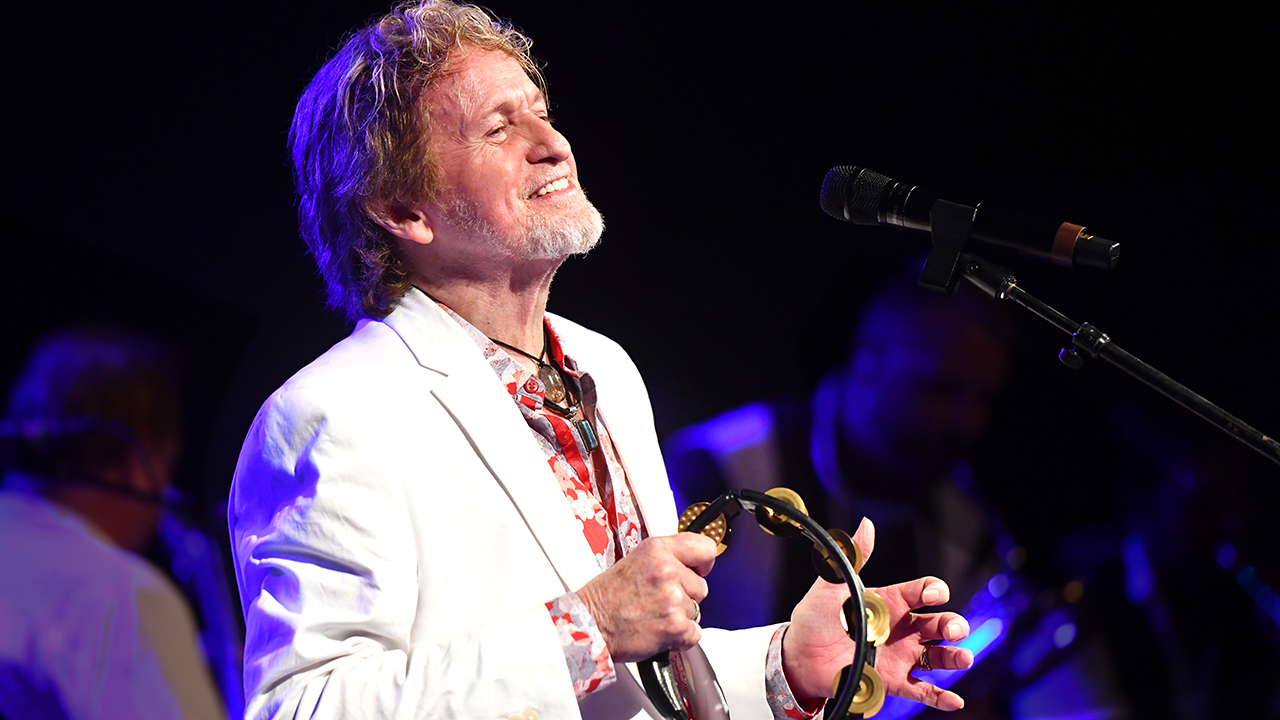"Ozzy jumped from one subject to another with astonishing rapidity, like some frantic pigeon": A mind-mincing encounter with Black Sabbath on the Sabotage tour
By 1976, Black Sabbath already had a huge heritage to live up to. We joined them on the road in Portsmouth
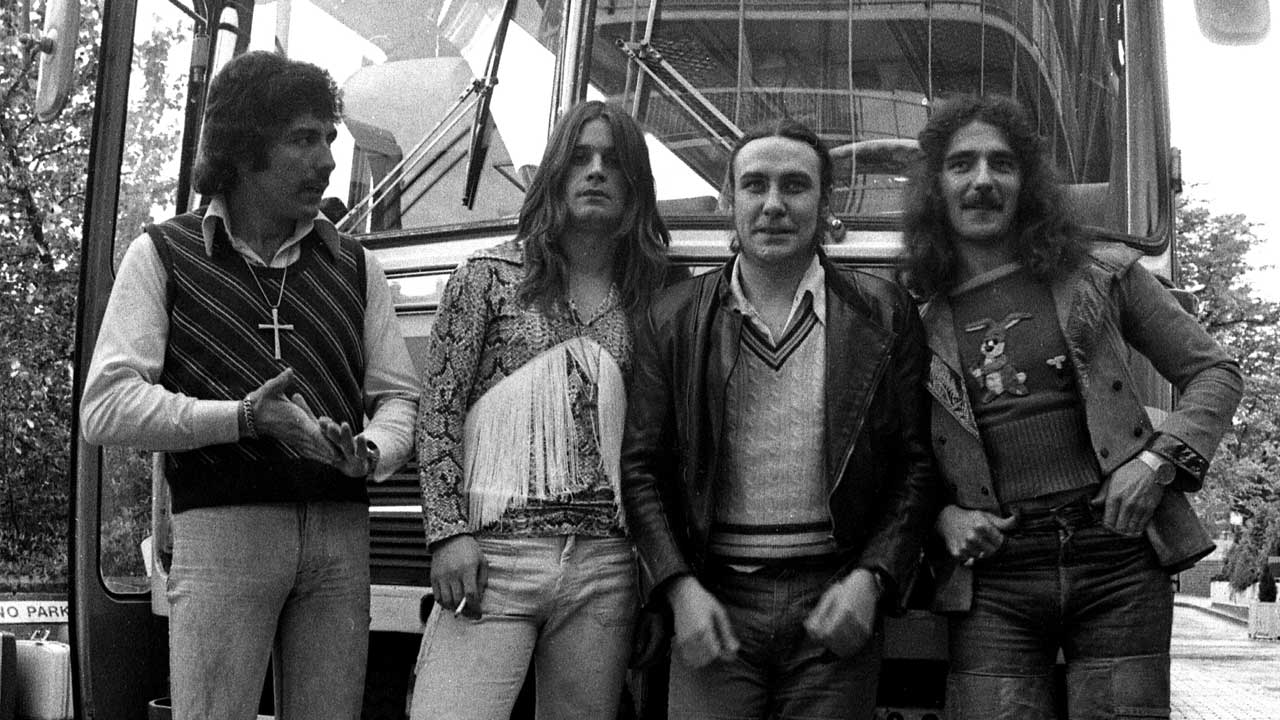
Select the newsletters you’d like to receive. Then, add your email to sign up.
You are now subscribed
Your newsletter sign-up was successful
Want to add more newsletters?

Every Friday
Louder
Louder’s weekly newsletter is jam-packed with the team’s personal highlights from the last seven days, including features, breaking news, reviews and tons of juicy exclusives from the world of alternative music.

Every Friday
Classic Rock
The Classic Rock newsletter is an essential read for the discerning rock fan. Every week we bring you the news, reviews and the very best features and interviews from our extensive archive. Written by rock fans for rock fans.

Every Friday
Metal Hammer
For the last four decades Metal Hammer has been the world’s greatest metal magazine. Created by metalheads for metalheads, ‘Hammer takes you behind the scenes, closer to the action, and nearer to the bands that you love the most.

Every Friday
Prog
The Prog newsletter brings you the very best of Prog Magazine and our website, every Friday. We'll deliver you the very latest news from the Prog universe, informative features and archive material from Prog’s impressive vault.
In January 1976, Sounds writer Geoff Barton travelled to Portsmouth to see Black Sabbath play one of the final shows on their Sabotage tour, a trek that had started the previous July at the Sports Arena in Toledo, OH. Below, he remembers the show, and his aftershow encounters with Ozzy Osbourne and Tony Iommi.
It was most appropriate. A scene out of Hell. The smoke – at once a seething, swirling grey, then a vivid red, suddenly a livid orange, multicoloured – billowed around in vast cumulus shapes, ever changing. Despairing hands thrust up from its seemingly unfathomable depths, groped blindly for that unreachable fingerhold and then, failing, disappeared.
Vague outlines of people’s faces could be discerned through the veil of shifting smog, mouths gasping for breaths of fresh air as the substance clogged the lungs. Long, flickering flames licked up from below, first here and then there, but died soon enough as the volatile vapour choked them back.
If the damned were screaming, it was impossible to hear.
Over the scene of hell-fire pandemonium washed an ear-shattering, mind-mincing noise. The sound of a violently erupting volcano, of a planet-splitting explosion, of a white-hot Moon rocket, leaving Earth’s atmosphere, or of… Black Sabbath.
Was it really like that? Did I really witness such an infernal scene?
Almost. It was inspired by a concert at Portsmouth’s Guildhall – a Sabbath concert. It was at the tail-end of the band’s epic Sabotage tour, dateline January 8, 1976. Dry ice clouds, eerie beneath the blazing light show, had gushed and flowed into the auditorium, over on top of the fans’ heads, crammed tightly as they were in front of the stage. Only their arms, flashing the perennial peace signs, showed. One or two smoke-smothered kids were using cigarette lighters, sparking them alight and allowing the flames to illuminate their two upstanding fingers, making them stand out from the other digits.
Sign up below to get the latest from Classic Rock, plus exclusive special offers, direct to your inbox!
And all the time the band were playing, oddly enough, their signature tune, their own leaden, doom-laden funeral march, the song Black Sabbath.
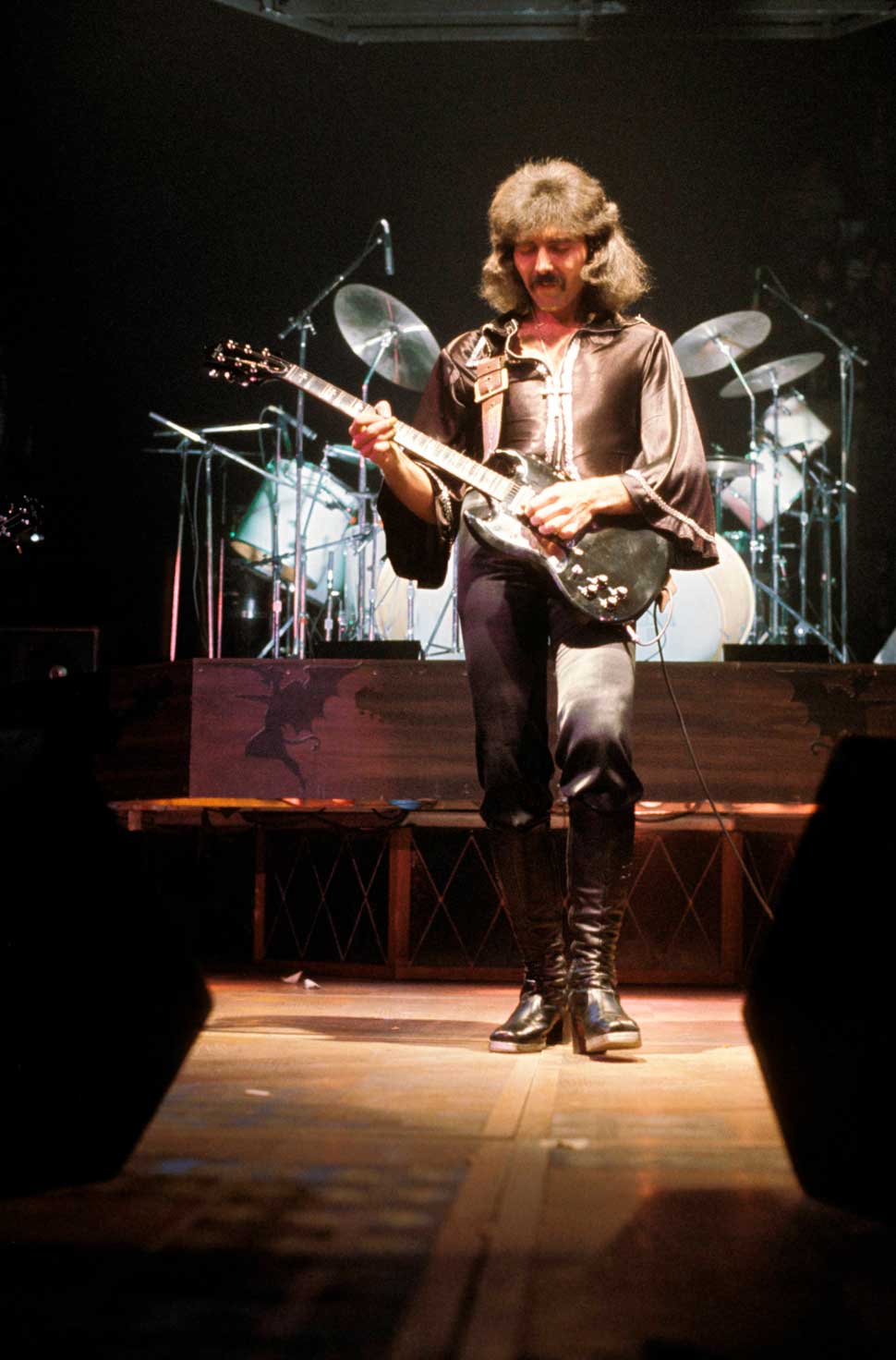
I was watching from the side of the stage, standing sideways-on, my left ear no more than six feet away from guitarist Tony Iommi’s backline. His amplifiers were set at pain-inducing volume. It felt like someone was shoving knitting needles into my cochlea. My hearing was going pop-pop-pop! with the distortion. It’s never been the same since.
However, it hadn’t been the best of nights for the Sabs. Power failures and miscued thunderclap detonations had resulted in an erratic set, and they had played badly, adopting an “I’ll be glad when this gig is over with” attitude. The crowd seemed to sense this and, consequently, the band didn’t enjoy their usual rapturous reception. It was obvious that they were displeased with their performance, but at the same time were loath to do anything about it on stage. The recriminations began in the dressing room, after the encore, with Ozzy Osbourne cursing in near-unintelligible Brum-ese and the other members visibly wilting before his verbal onslaught…
From out of the late-60s mists of Birmingham they came, four school chums together in a band called Polka Tulk, which would later change its name to Earth: two of them, Tony Iommi and Bill Ward, late of combos called The Rest and Mythology; the other pair, Ozzy Osbourne and Geezer Butler, once members of Rare Breed.
“We all knew each other and so we got together. It’s as simple as that,” Iommi told me, backstage in Portsmouth after the arguments had subsided.
Earth, believe it or not, played 12-bar jazz-blues material in a Ten Years After vein and, if reports are accurate, made a very good job of it. By 1968-’69 they had acquired a strong following, predominantly in northern England and southern Scotland. But then they decided it was time for a change.
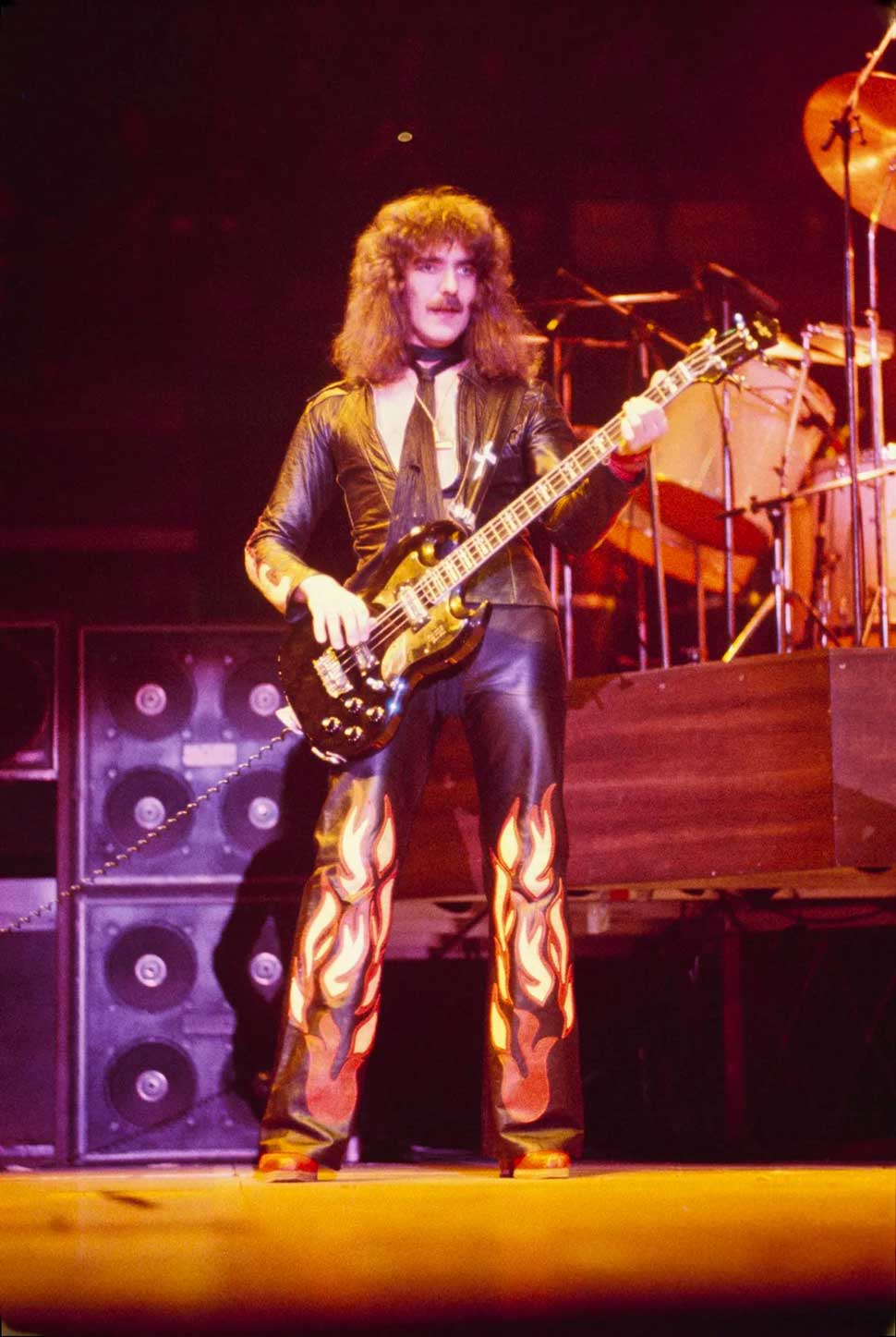
Another group called Earth were apparently playing the circuit at the same time, resulting in a good deal of confusion. Plus: “There was a lot of crap music going around at that time,” related Ozzy, calmer now. “In fact, Earth started off as a six-piece band – we even had a saxophone player. Eventually we decided to change our musical outlook and broaden our horizons. Do some different things. Some heavy things. It was very much a natural progression. Put simply, we started playing the sort of music we liked.”
“We weren’t doing anything at all with Earth’s music,” Iommi expanded, rather inarticulately, “and so we just sort of got into something heavier.”
Clear-cut reasons, with no room for misinterpretation. Christened Black Sabbath by Geezer Butler, after the now-familiar song written during Earth days on a ferry to Hamburg, the band’s music accordingly altered beyond recognition, to what appeared initially to be a more commercial product. To some, there also seemed to be a noticeable drop in the standard of musicianship. The plain fact was, when Earth became Black Sabbath it wasn’t so much a straightforward metamorphosis as a deeply unpleasant mutation.
“We wrote the song Black Sabbath and everyone thought we were a bunch of Boris Karloffs,” laughed Ozzy. “We started getting invites to black masses, to so-and-so’s cemetery opening. We thought: ‘Is this a wind-up?’”
A single, Evil Woman, Don’t You Play Your Games With Me, a cover of a song by a band from Minneapolis called Crow, enjoyed halfway decent sales and a subsequent debut album, although universally slammed (“It had the worst rating ever,” sighed Iommi), was one of the hottest platters of 1970.
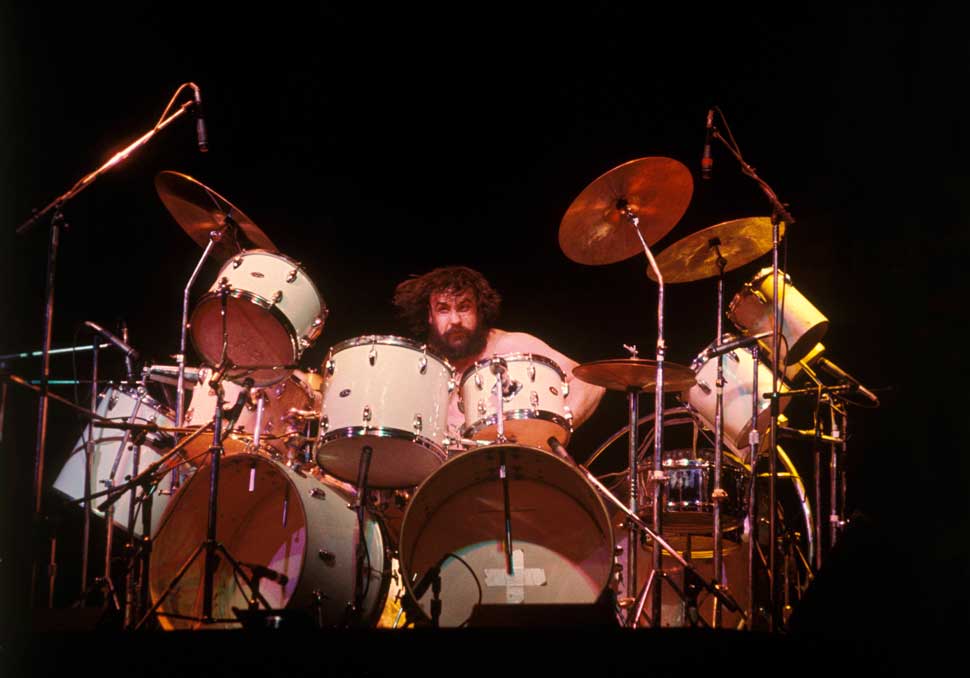
Black Sabbath – recorded in something like 48 hours, probably substantially fewer – ranks alongside Blue Cheer’s Vincebus Eruptum as a bona fide all-time classic heavy metal abum. One of the first of a rare breed. It’s formative Sabbath: under-rehearsed, fundamental stuff, no frills, mostly bludgeoning cudgel-rock. But the sleeve is a masterpiece, and at the top left the band’s logo is presented in an amateurish cursive typeface: Satan’s own Letraset.
The album opens with the atmospheric – oh, all right then, foreboding – theme Black Sabbath. Falling rain, a distant church bell ringing, then suddenly Iommi’s guitar riff plunges in with the ferocity of a mauling panther.
Evil Woman… is included, still the most accessible thing the band have ever done. (American buyers got a track called Wicked World instead of Evil Woman…; Wicked World was the B-side of the Evil Woman… single in the UK.) There’s also The Wizard, which actually has some quite reasonable harmonica playing.
But the standout track – indeed, how could it do anything but stand out – is the Aynsley Dunbar composition, of sorts, Warning. Really a vehicle for Tony Iommi to let rip with primeval riffs that had been stored up in his noggin for countless years, and also a 15-, 20-minute-long filler – it seems that the Sabs didn’t have enough ‘conventional’ numbers to make up the space.
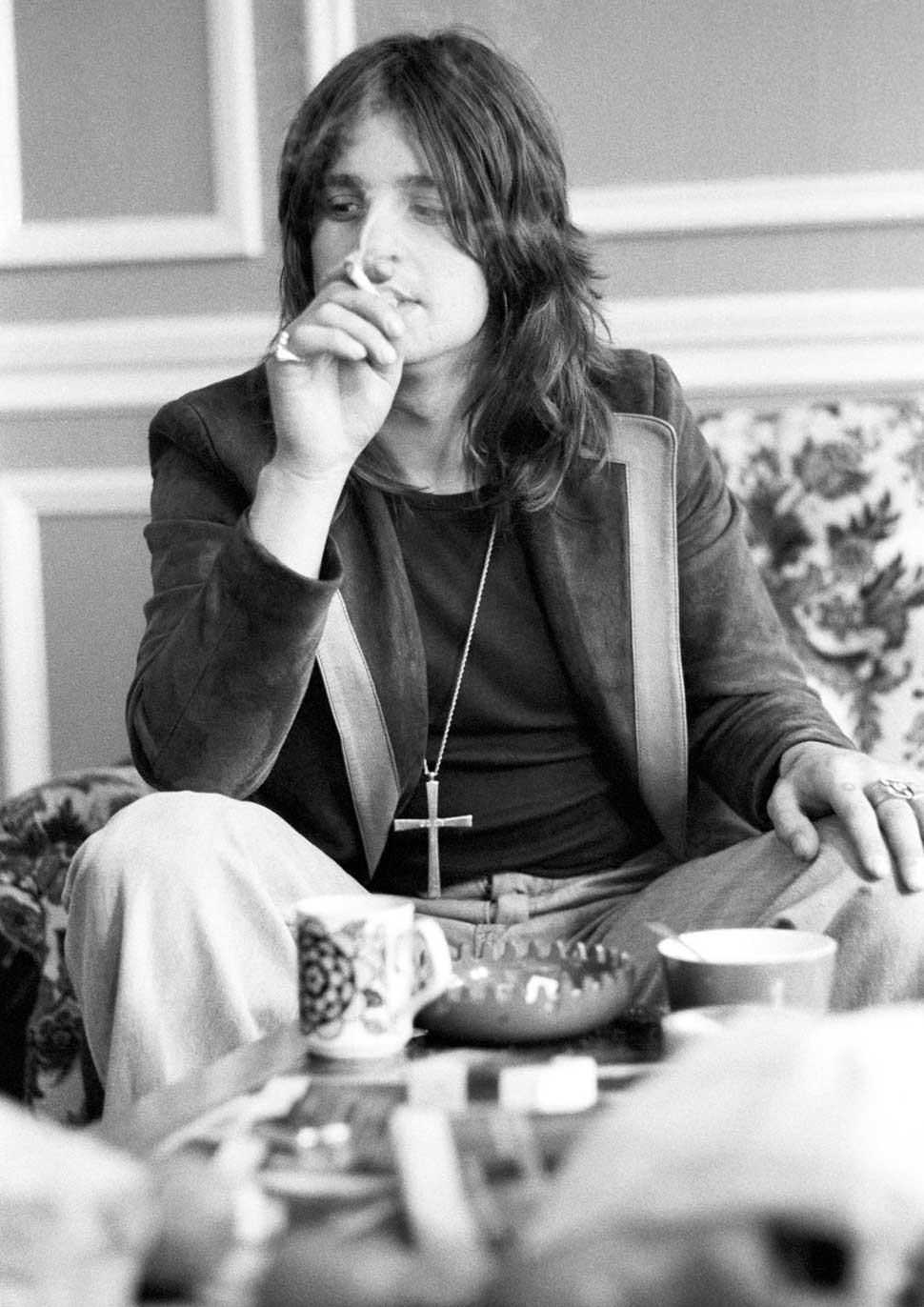
Not surprisingly, Ozzy’s favourite word is ‘paranoid’. To you or I the words would be ‘worried’, ‘concerned’ or ‘perturbed’. But Mr Osbourne is always ‘paranoid’.
It was a sometimes disturbing experience, driving back to London’s Swiss Cottage Holiday Inn after the Portsmouth gig in the Range Rover, Ozzy sitting in front of me, the band’s chauffeur – or should I say ‘demon driver’ – at the wheel.
The first time I interviewed O.O., he confessed to me that he was “three-quarters mad”. He was joking, I assumed. But then again, I wasn’t so sure. In the car, Ozzy jumped from one subject to another with astonishing rapidity, like some frantic pigeon, pecking at one crumb and then the other. He was as prone to long moments of silence as he was to extended paragraphs of conversation. He leapt from his car seat in apparent terror at the slightest provocation, even when the Rover had the furthest of near misses.
Suddenly, for no apparent reason, Ozzy decided that the phrase ‘out of it’ sounded similar to ‘Auschwitz’. “Out of it… Auschwitz… Out of it… Auschwitz… Out of it… Auschwitz…” He repeated the mantra for two or three minutes, then stopped.
There’s a fine line between normality and insanity, so the shrinks say, and in ’76 Ozzy had us believe that he was lying a-straddle it. And really, at the time I wasn’t inclined to disagree. It seemed as if songs such as Who Are You? (from 1973’s mighty Sabbath Bloody Sabbath album) and Sabotage’s Am I Going Insane? – originally scheduled for release on an Osbourne solo album – were in fact quite autobiographical…
Later, back at the hotel in London, Richard Ogden, Black Sabbath’s genial publicist, took me to one side and half-pleaded, half-insisted: “When you write your feature, please don’t say Ozzy is mad. He’s not, you know. He’s not, I tell you. He’s just… not.”
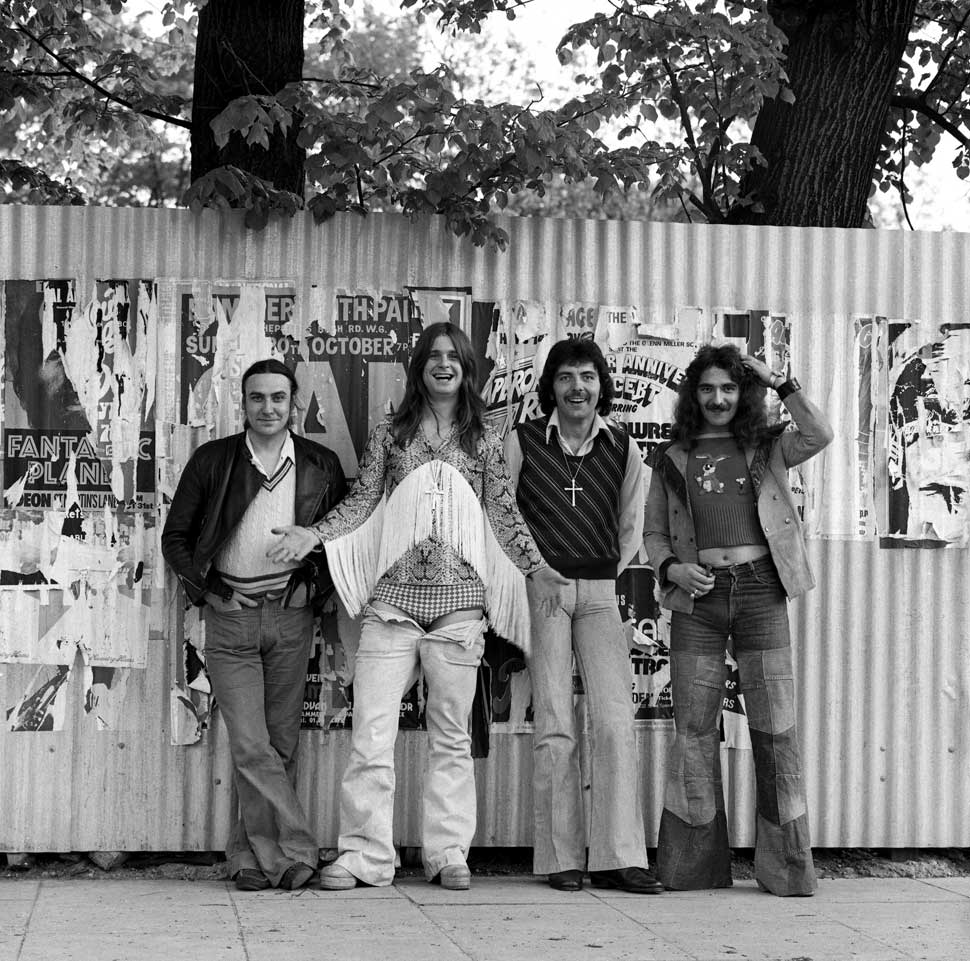
Geoff Barton is a British journalist who founded the heavy metal magazine Kerrang! and was an editor of Sounds music magazine. He specialised in covering rock music and helped popularise the new wave of British heavy metal (NWOBHM) after using the term for the first time (after editor Alan Lewis coined it) in the May 1979 issue of Sounds.

